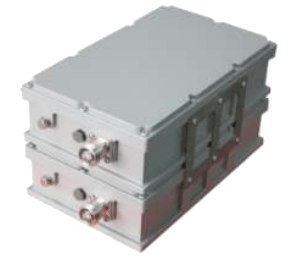RF Network Optimization
In cellular networks like 5G and LTE, time division duplexing (TDD) and frequency division duplexing (FDD) are typically used.
If the cellular system is using different carrier frequencies for the Uplink and Downlink, then the duplexing mode is called FDD. In this case, both the UE and the eNB can transmit at the same time.
For FDD, a channel separation is needed to reduce the interference between the Uplink and Downlink traffic. RF Network Optimization should check the RF chain design that should provide enough out-of-band rejection in the transceiver. This can be accomplished using high-quality RF filters.
Typical KPIs in cellular networks:

- RSSI: Received Signal Strength Indicator (RSSI) measures the wide-band received power within the specified channel bandwidth.
- RSCP: Received Signal Code Power (RSCP) measures the received power on one code on the primary common-pilot channel (CPICH).
- Ec / N0 and Ec / I0: The received energy per chip divided by the noise power density (Ec / N0) (interference power density Ec / I0) in the band.
- BLER: Block Error Rate is used to measure error blocks within a specific
channel transmission as a measure of transmission quality. - CINR (C/(I + N)): Carrier to interference plus noise ratio power level. The CINR is measured in both the UE and eNB to determine the radio bearer to be used based on some predefined set of thresholds.
- EVM: Error Vector Magnitude measures of the difference between the measured
symbol coming out of the equalizer to that of the reference.
Our RF filters may help in optimization of your 5G/LTE networks (only a small selection of filters is listed below):
| Frequency Range(MHz) | Insertion loss | Rejection | Return Loss/VSWR | Input Power |
|---|---|---|---|---|
| 895-950 | ≤0.6dB | ≥80dB @ 865-885MHz | ≤-20 dB/1.22 | ≤300W |
| 895-950 940-950 | ≤3.0 @ 895-897.5MHz ≤1.1 @ 897.5-898.5MHz ≤0.6 @ 898.5-905MHz ≤0.5 @ 940-950MHz | ≥45dB Below 894MHz | ≤- 20 dB/1.22 | ≤200W |
| 895-950 940-950 | ≤1.5 @ 895-896.5MHz ≤0.5 @ 896.5-905MHz ≤0.5 @ 940-950MHz | ≥45 dB @ 820-894MHz | ≤-19dB/1.25 | ≤200W |
| 885-895 930-940 | ≤1.2dB ≤0.8 dB | ≥40 dB @ 870-880MHz ≥15 dB @ 905-920MHz | ≤-19dB/1.25 | ≤300W |
| 1710-1785 1805-1873 | ≤1 dB | ≥60 @ 1880~1920 | ≤-19dB/1.25 | ≤300W |
